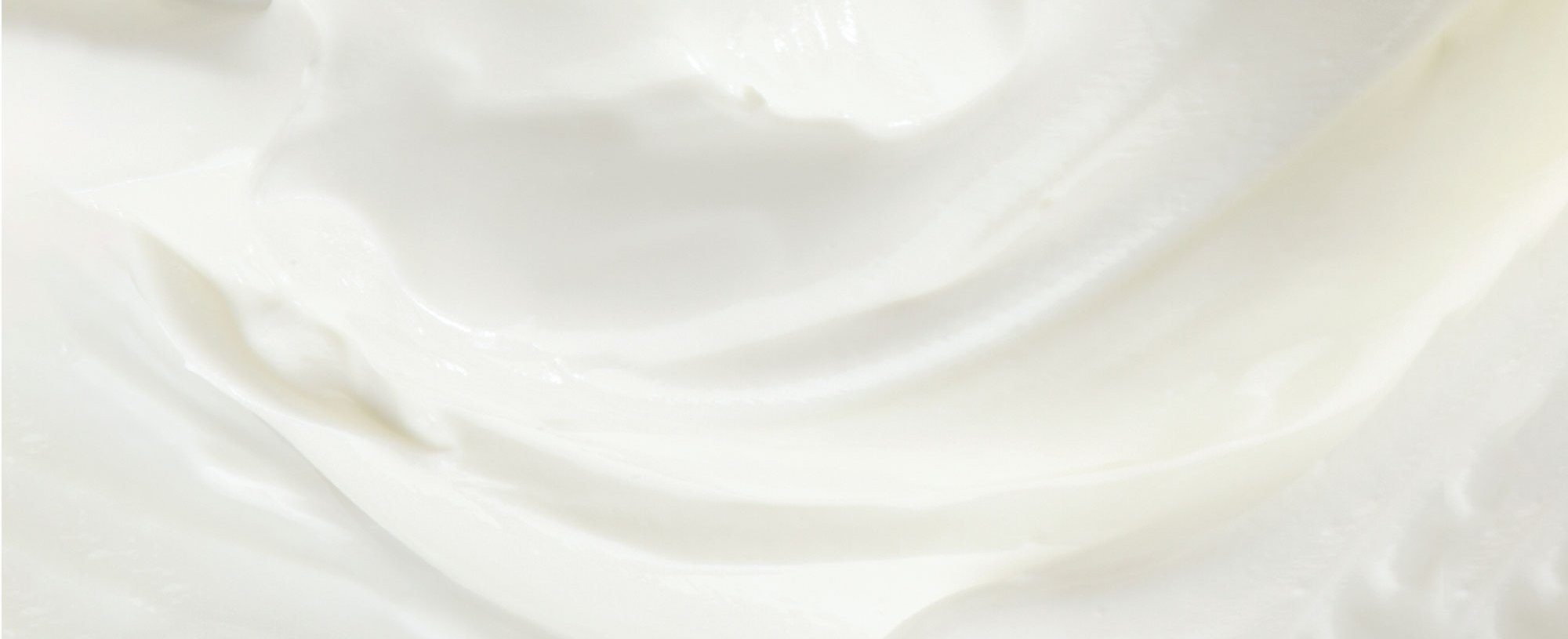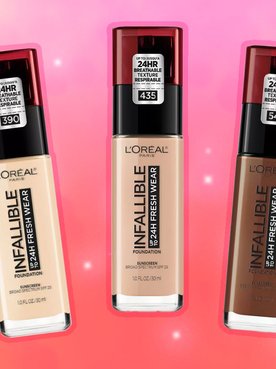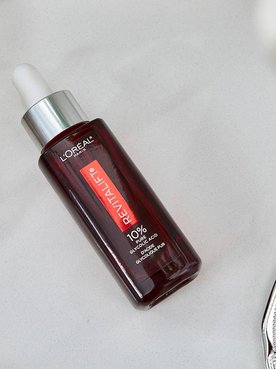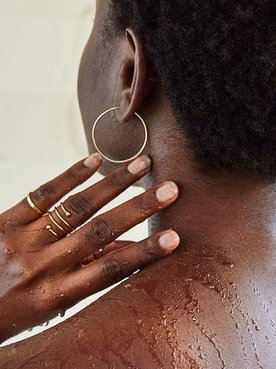Free radicals—we’re sure you’ve heard all about them, but what are they? They’re constantly referenced in both the health and skin care worlds, so it’s about time you learn the details. Below, we’re breaking down what free radicals are, what you need to be aware of in terms of free radical damage, and the ingredients you can incorporate into your skin care routine to help reduce the effects of free radicals on your skin’s surface.
WHAT ARE FREE RADICALS?
Let’s dive into that free radicals definition, shall we? Free radicals are atoms that are produced during normal cell metabolism, according to a study from the National Center for Biotechnology Information (NCBI). These atoms contain one or more unpaired electrons, making them unstable, short-lived, and highly reactive. Per the Mayo Clinic, they are produced when your body breaks down food and can also be a product of tobacco smoke and radiation exposure via UV light, X-rays, and gamma rays.
CAN FREE RADICALS CAUSE DAMAGE?
Since these free radicals are unstable, do they have the potential to cause damage? Simply put—yes. The NCBI study states that because free radicals have an uneven number of electrons and have a high level of reactivity, they can abstract electrons from other compounds in order to stabilize themselves. This causes the attacked molecule to become a free radical, leading to a chain reaction. The result? A damaged cell.
So, how does this all play into skincare? According to the Cleveland Clinic, skin exposed to the sun and environmental aggressors (e.g., pollution, smoke, etc.) can become damaged by free radicals. In fact, what is often thought of as skin aging can really be the effects of this damage. Free radicals attack the lipids in your skin that are responsible for protecting against moisture loss. Skin then appears less youthful because dryness and a loss of elasticity are generally the noticeable consequences of such lipid loss. The NCBI reiterates this, stating that free radicals can result in damaged DNA, which can lead to increased photoaging.
6 INGREDIENTS THAT HELP PROTECT AGAINST FREE RADICALS
Wondering what ingredients can help protect your skin’s surface from free radical damage? Per the Cleveland Clinic, antioxidants have been shown to help skin that’s been damaged by free radicals. How does that work? While it isn’t 100% understood, the general belief is that the antioxidants are able to help prevent damage before it occurs. Antioxidants are known to have the power to neutralize free radicals, stopping them from breaking down lipids. Here are five such antioxidants, courtesy of the American Academy of Dermatology, as well as tips for how to add them into your daily routine.
1. Vitamin A. Vitamin A is an antioxidant that is known to help reduce visible damage caused by free radicals, and the same is true of vitamin A derivatives, including retinal and retinol. To incorporate this ingredient into your skin care regimen, try the L’Oréal Paris Revitalift Triple Power Day Lotion SPF 30, which is formulated with Pro-Retinol, vitamin C, hyaluronic acid, and SPF 30 to reduce the appearance of wrinkles, firm, and brighten skin.
2. Vitamin C. Naturally found in skin, vitamin C is another vital antioxidant that has many benefits, which include boosting radiance and neutralizing free radicals that lead to skin aging. To use it in your routine, pick up the L’Oréal Paris Revitalift Derm Intensives 10% Pure Vitamin C Serum. Formulated with 10% pure vitamin C, this serum effortlessly glides onto skin to restore skin’s radiance and reduce noticeable wrinkles.
3. Vitamin E. Another primary antioxidant, vitamin E, and forms of vitamin E known as tocopherols and tocotrienols, also help to scavenge free oxygen radicals. Try the L’Oréal Paris Revitalift Bright Reveal Brightening Day Moisturizer SPF 30, which contains tocopherol, as well as SPF 30, glycolic acid, vitamin C, and Pro-Retinol, for a formula that helps reveal brighter skin, corrects uneven skin tone, and reduces the appearance of wrinkles.
4. Polyphenols. This antioxidant helps to scavenge free radicals and can be found in green tea and pomegranate.
5. Zinc. Last on our list is zinc, an antioxidant that is known to help induce the synthesis of free radical scavengers. You might recognize this antioxidant as a popular ingredient in sunscreen, but you can also find it in the L’Oréal Paris Age Perfect Cell Renewal Golden Serum, which maximizes skin's power of rejuvenation by stimulating surface skin cell renewal to reveal more youthful-looking skin.
Next up: Let’s move onto your next skin care lesson. For another ingredient that can help prevent photoaging, check out Your Guide to Polyhydroxy Acids.





